
Cadillac invited us out for a chance to get up close and personal with the “production-spec” Lyriq EV that they unveiled back in April.
We’ve got photos and video to share, and you can decide for yourself whether you agree that this thing looks sweet.
Cadillac also announced in April that every new vehicle they announce will be fully electric from now on.
So Cadillac is (finally) all-in on the electric future, and this is their first real attempt at an electric vehicle (the ELR – a rebadged Volt – and the CT6 PHEV were both plug-in hybrids). It’s an impressive first attempt, the first Cadillac to use GM’s all-EV dedicated “Ultium” platform.
While this was a “production-spec” car, there were still a few pre-production parts. We can’t comment on how it drives, but in terms of interior and exterior looks, it certainly seems like they knocked it out of the park.
For a quick reminder on the basics, the Lyriq will start at a base price of just under $60k. The car will have a 100 kWh battery that puts out up to 340 horsepower to the rear wheels and will be good for “more than 300 miles” of range (no official EPA estimate yet). Initial models will be available in rear-wheel drive configurations, with an all-wheel drive version coming soon after.
It comes with an onboard 19.2kW charger, which is a little bit of overkill but means you’ll be able to charge from 0->100% in just five hours at home, if connected to a 100 amp circuit. For DC charging, the car can charge at up to 190 kW, or 76 miles of range in 10 minutes and 195 miles in 30 minutes, which is no slouch.
The interior looks a little more spacious in this video through a wide-angle lens, but it does feel plenty comfortable inside. We didn’t get a chance to feel the car with multiple occupants, but this is a Cadillac, and the interior feels like one. It’s cushy and luxe, as you’d expect, and everything looks and feels high quality.
The fixed glass roof is massive and adds a spacious feeling while enhancing headroom. There is a retractable cover to keep the sun off your head, but no sunroof is available.

Cadillac prioritizes trunk space, so the trunk is quite large. We couldn’t push the seats down, but here’s a photo that Cadillac gave us showing how much space you can get:

There’s no “frunk” available on the Lyriq due to the space requirements of the 19.2kW charger and optional all-wheel drive, so you’ll have to make do with the large rear storage space. There is an underfloor storage area to store mobile charging cords and other “keep in the car all the time” tools, which Cadillac asked us not to photograph since it’s not yet up to production spec.
Cadillac’s Super Cruise is available on the Lyriq, with some improvements over its current functionality on the Bolt EUV. It will not only be able to change lanes automatically on blinker activation, but it will also be able to decide on its own to change lanes in the event that you are behind a slow car and there’s a faster lane beside you.
Super Cruise currently only works on designated roads (primarily highways), and the system has several safety backups to ensure system functionality (satellite, radar, and other car sensors) and driver attention (camera and torque sensors on the steering wheel). It’s meant as a driver aid, not an autonomous drive system.
There’s a reasonable amount of interior storage. Designers told us that the increased packaging freedom afforded by the car’s electric powertrain allowed them to free up space in the interior, for example with a space underneath the center console to store handbags and such. The original Model S had something like this as well, which was very popular for anyone who made practice of carrying a small bag.
There’s also the standard complement of buttons and knobs along with the massive touchscreen. Cadillac wanted some controls to be digital and some physical, giving the driver full access to the settings they need. Also, given Cadillac’s customer base, they didn’t want to alienate their existing customers with too-radical of a redesign of driver controls.

We didn’t get a chance to fiddle with the interface, but we’re looking forward to trying it out. Cadillac says the car will have over-the-air updates for “Super Cruise, infotainment functionality as well as other functionality related to performance and other features.”
The Lyriq only has two exterior and interior color schemes (so far?): “Satin Steel Metallic” and “Stellar Black Metallic” on the exterior and “Sky Cool Gray” and “Noir” on the interior. We only got to see one set of options, but the limited choices and monochrome nature of them suggest that they should all work together equally well.
The rear end has a cool feature: There’s a slight aerodynamic wing protruding over the rear window. This channels air directly down over the rear window, which enables a wiper-less design, as moving air helps to clear rain and snow from the window. We can’t comment on how well this works, but it should also help improve efficiency by channeling air downward and reducing eddies behind the vehicle.
Finally, Cadillac was very proud of the design of the optional 22-inch wheels. They’re partially aerodynamic to improve efficiency, but they don’t really look like your standard aerodynamic wheels.

The Lyriq goes into production Q1 of 2022, and should start hitting the roads in Q2 2022, though with a 2023 model year. GM will start taking reservations on September 18.
We’ll be sure to get back to you with further impressions as we see more of it and get a chance to drive it, but so far, we like what we see.
While the $60k price isn’t “cheap,” you’re certainly getting a lot of car for the money – 100 kWh battery and a super luxe interior. This price is pretty reasonable given the segment, and the Lyriq may even qualify for tax credits if the federal government removes the 200,000 vehicle cap that GM hit long ago.
As long as the drive experience holds up, we think they’ve really hit a sweet spot here and can sell every unit they build for years to come. We just hope they actually build enough of them.
What do you think of the 2023 Cadillac Lyriq? Let us know in the comments below.
FTC: We use income earning auto affiliate links. More.
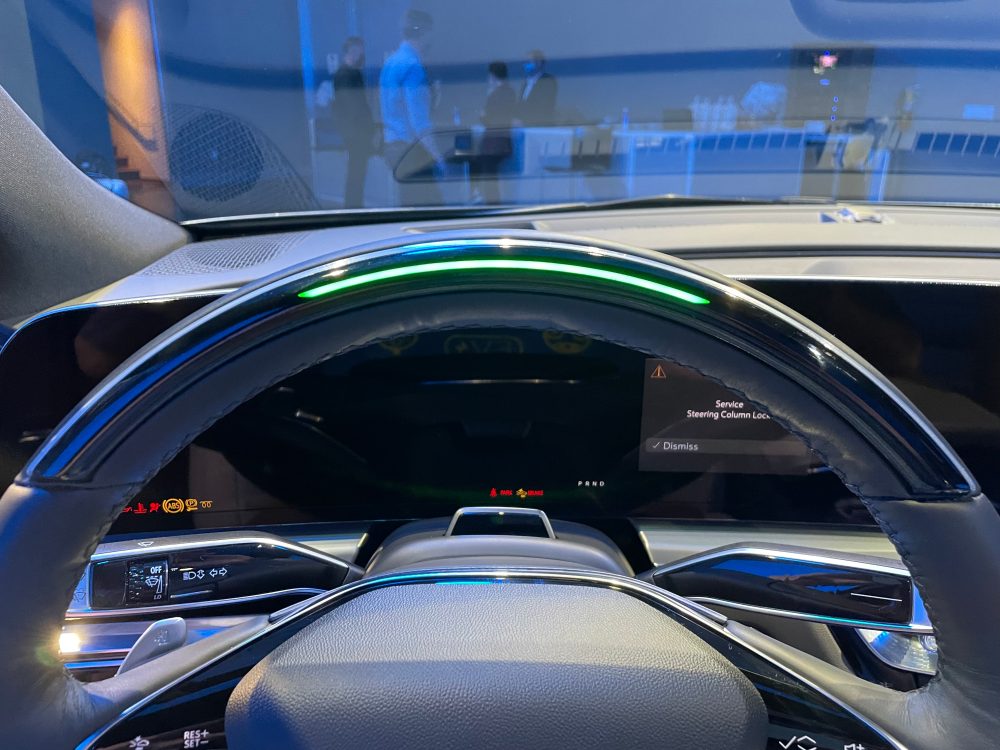
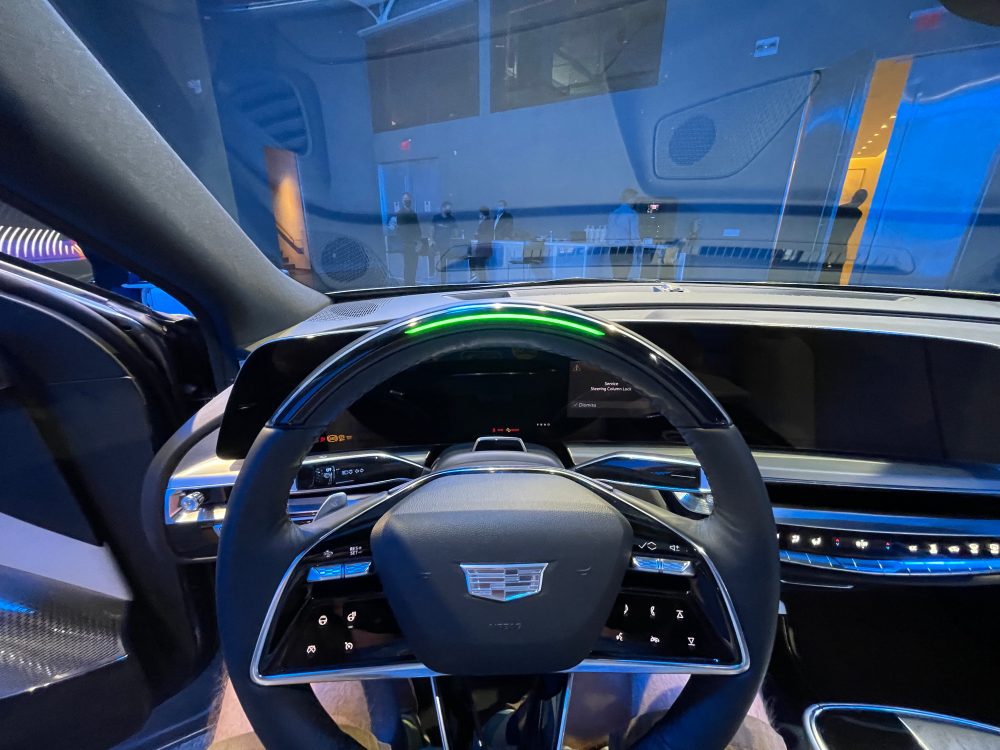
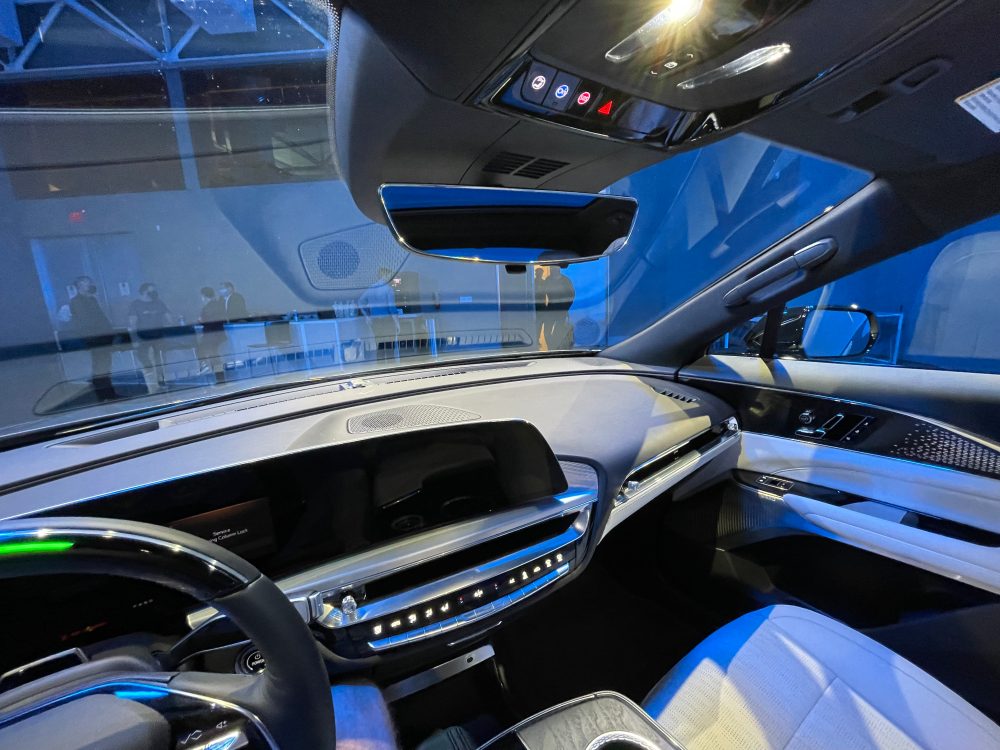
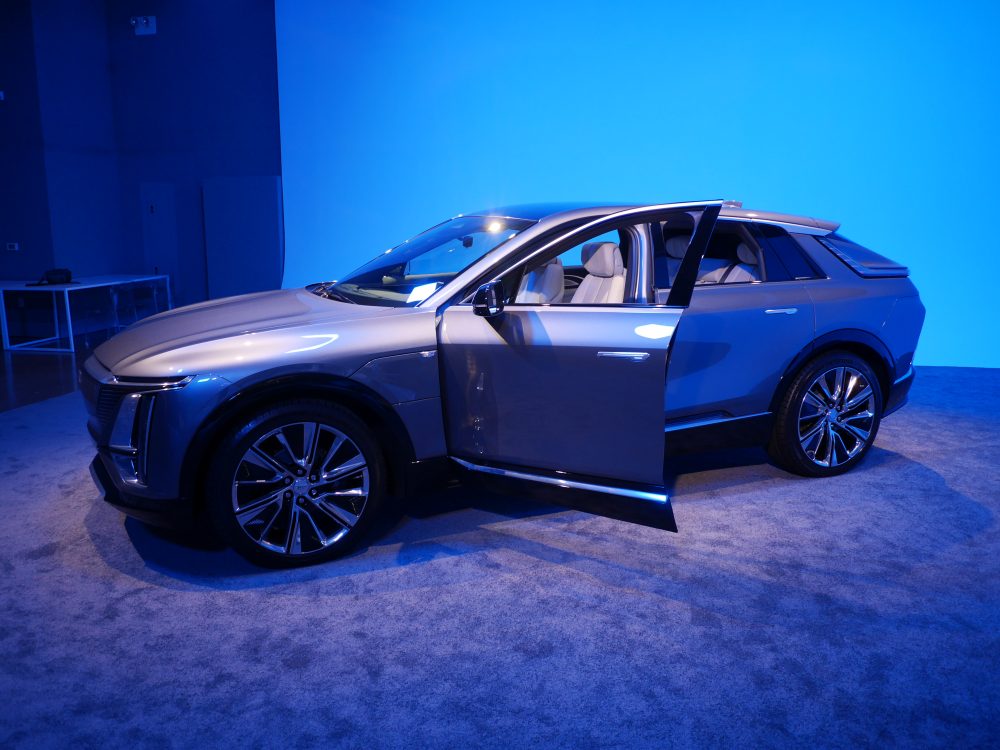
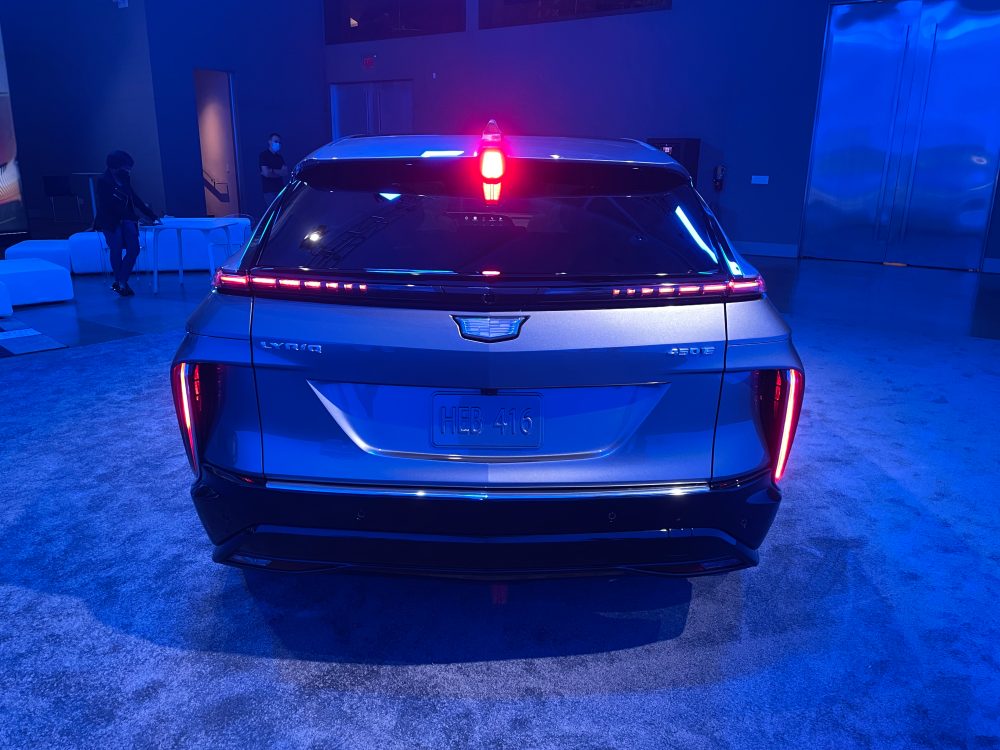
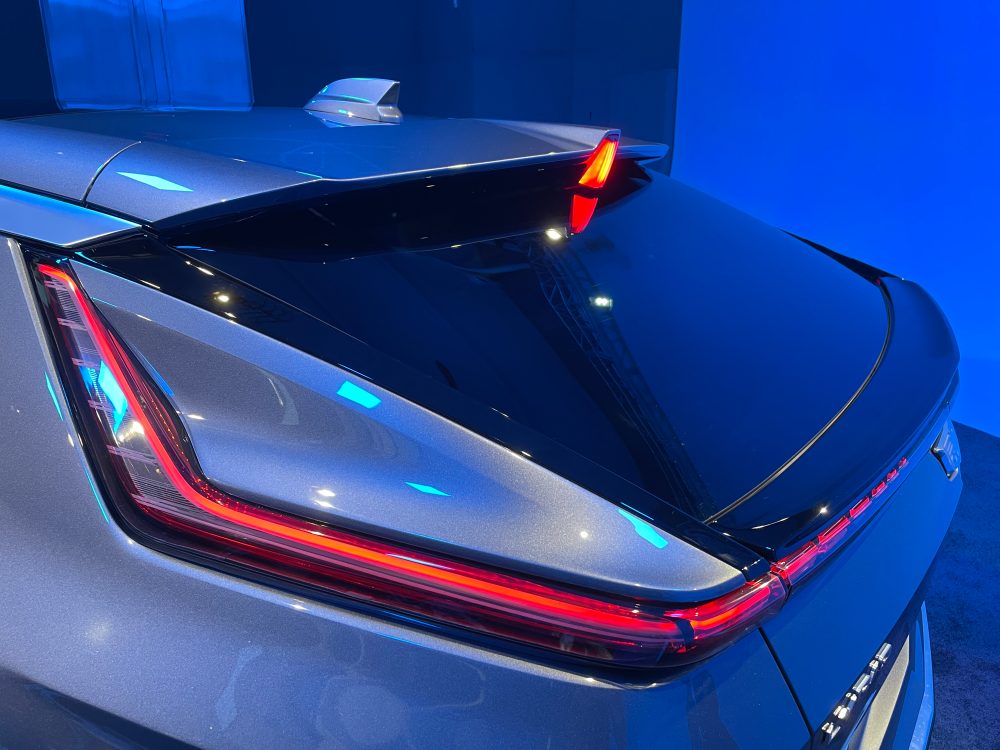
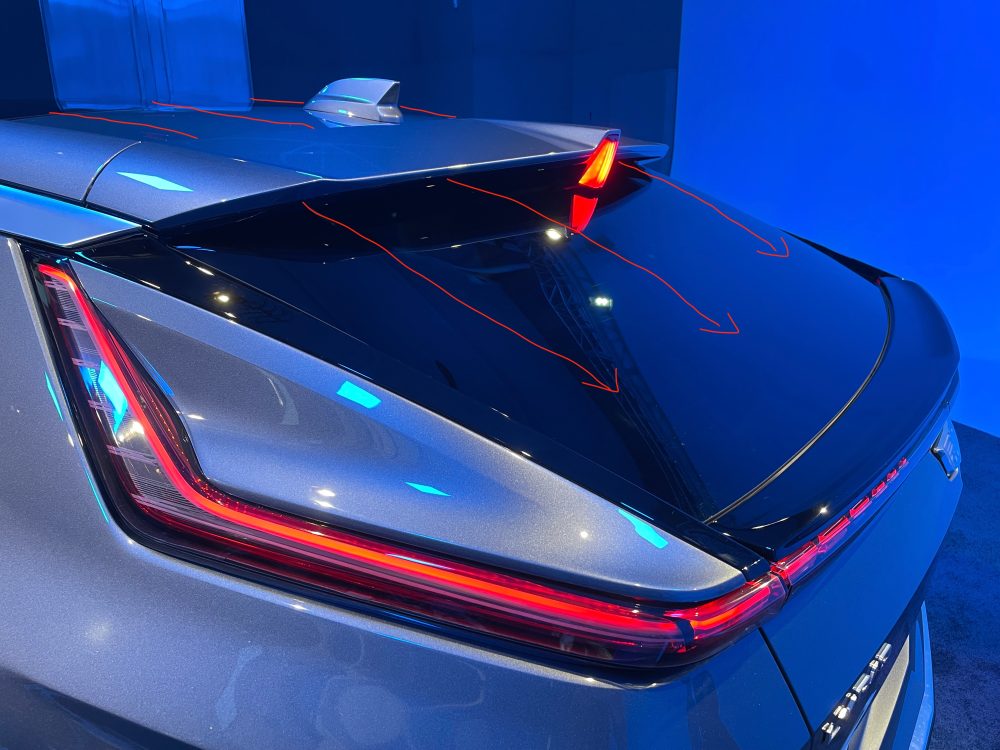





Comments